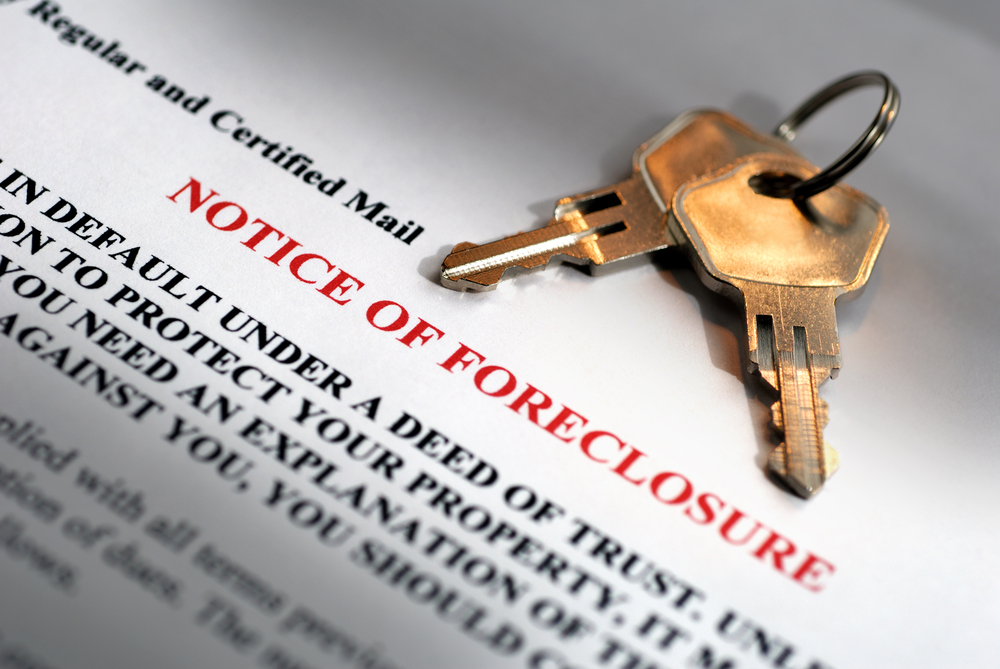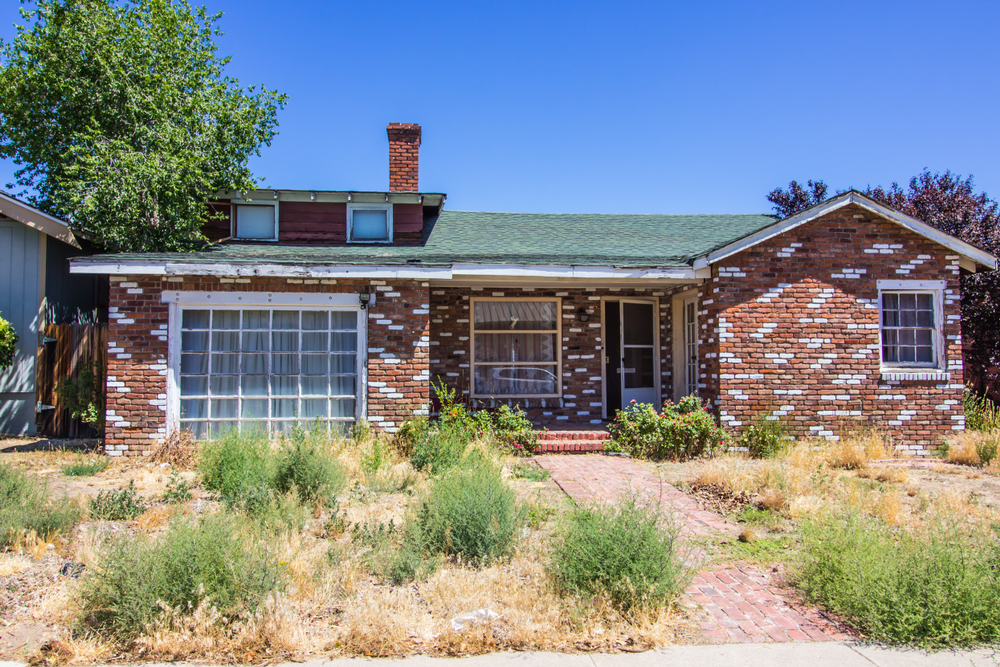If you are having financial trouble and are at risk of foreclosure, you might be considering selling your home. However, if you don’t have enough equity in your home to pay off your mortgage balance at closing, you need to get approval for a short sale from your lender.
In a short sale, your lender forgives the outstanding mortgage balance after you sell your home for less than you owe. They pay your real estate agent’s commission, your attorney fees, and they’ll even pay you a relocation incentive to help you with moving costs.
You may be wondering, “Why would my bank accept a short sale? Wouldn’t they profit more by repossessing and then selling my home?”
In this blog post, we’ll explain why lenders are willing to work with you on a short sale rather than pursue foreclosure, and how short-selling is the best-case scenario for both you and your bank.
Foreclosure Process from a Lender’s Perspective
Before we explore why a lender might prefer a short sale, let’s delve into what the foreclosure process looks like from the lender’s point of view.
The steps that lead to foreclosure:
- After missing the first mortgage payment, the lender will try to reach the borrower by telephone, email, and/or send out a missed payment notice.
- If there’s no response after 3 months of missed payments, the lender sends a demand letter.
- At this point, a borrower could:
- Pay what is owed
- Modify their mortgage
- Opt for a short sale
- Avoid their lender which would then inevitably lead to foreclosure (the foreclosure process starts when the borrower is late for 120 days with their payment)
- After 4 months of missed payments, the lender sends a notice of default, which is the first step of foreclosure.
- The lender will determine which type of foreclosure is required: judicial (involving court) or non-judicial.
During this time, the bank has already lost revenue on your missed mortgage payments. They’ve also had to enlist their loss mitigation department to manage the next steps in the default process.
How Long Does a Foreclosure Take?

This varies state-by-state and case-by-case. Typically, judicial foreclosures can last around 2.5 years, but non-judicial foreclosures (those not involving the court) can take only a few months after the initial foreclosure clock starts. So, 4 months to start the clock, plus 3 – 6 months to repossess the home.
Naturally, lenders want to avoid involving the court since these foreclosures take more time and are therefore more expensive. From filing a lawsuit and getting a court order, they’re already at a huge disadvantage from the legal fees, court fees, administrative costs, and lost revenue from mortgage payments.
Meanwhile, the borrower may decide to stop maintaining the property while they ride out the lengthy foreclosure process. (Why would they continue putting money into the upkeep if they know they’re going to lose their home?)
With no one maintaining the property, the list of repairs needed before reselling adds up. Also consider potential storm damage, pest control issues, and illegal dumping or other environmental hazards. This could lead to devaluation over time and make it even harder for lenders to sell the home after repossessing it.
Administrative costs aside, the foreclosure process carries a lot of risk for the lender as they don’t know what condition the home will be in when they take it over.
Lenders Don’t Want to Be Property Managers
Banks are not in business to manage and rent out repossessed homes. They don’t want to spend money to upkeep and maintain property.
Think about it like this: the lender would have to hire a property manager to handle repairs, landscaping, snow removal, etc. They would be responsible for checking in on the property after rain or snow storms, and routinely check for leaks and damage.
They have to pay the property manager for their time, plus pay for any needed repairs. Meanwhile, as long as the house sits vacant, the bills keep stacking up. The bank needs to pay utility bills, HOA fees, taxes, and insurance.
Lenders also don’t want to be responsible for whatever repairs are needed in order to get the home ready for resale. If the home isn’t in a desirable location and needs a lot of updating, it will sit on the market for a long time. Likewise, if the home isn’t livable, a buyer won’t qualify for traditional financing and the bank will have an even harder time trying to sell it.

Why Is a Short Sale a Better Option for a Lender?
Considering the time and expenses involved in a foreclosure, it’s easy to understand why lenders would readily approve a short sale.
It all comes down to the numbers and to the bank’s tolerance for risk.
Short sales typically last from a few weeks to a few months, while foreclosures can take 6 months to over two years. They’re also usually more expensive.
The credit rating agency Standard & Poor’s found that a typical foreclosure costs the lender around 26% of mortgage loan amounts. According to the Joint Economic Committee of Congress, the average foreclosure costs lenders around $78,000.
Compare this to the loss the bank would take on a short sale, and it’s plain to see that foreclosure is more complicated and more costly.
Alternatives to Foreclosure
If a borrower knows that they’ll have short-term difficulty paying their mortgage, they can and should reach out to their lender to explore other payment options. Banks are required by law to offer assistance programs to help you stay in your home.
Here are some payment programs that your bank might offer:
- Mortgage forbearance – This allows you to pause your mortgage payments (or pay less) during your financial hardship period. Eventually, you will have to catch up on the payments you missed.
- Loan modification – Many lenders offer loan modification programs, which alter the terms and monthly payments on your loan. This mostly depends on your bank, the type of loan you have, and the nature of your financial hardship.
- Deed-in-lieu of foreclosure – If you go down this route, you will be transferring the ownership of your property to your lender. You will be relieved of your debt, but you will also lose your home. This is sometimes known as a “soft foreclosure.”
- Short sale – If you have negative home equity, you can sell your home for less than your mortgage debt. Your lender takes the financial loss and forgives the remaining mortgage balance.
It might seem counterintuitive for a bank to prefer taking a loss on your mortgage over repossessing your home. But when you look at the time and expense that they go through in a foreclosure, you understand that, in most cases, a short sale is less expensive and less risky for the lender.
If your situation qualifies for a short sale, engage a real estate agent with extensive short sale experience to help you get the process started. A short sale costs $0 out of pocket, and has minimal damage to your credit score and future buying power. The key is hiring an experienced short sale team to represent your best interests.
_____________________________
If you live in the Washington, DC metro area, call Marc Dosik and the Fed City Team to discuss your options for a short sale. Marc and his team have rescued over 130 homeowners from foreclosure proceedings. They help you sell your home and work with your lender to get the mortgage deficiency forgiven, all at no cost to you. They even negotiate with the lender to pay your relocation costs, giving you $3,000 or more cash-in-pocket to help you get back on your feet.
Avoid foreclosure. Contact Marc Dosik today!
Want to learn more about the short sale process?
Download our FREE ebook: How to Sell Your House in a Short Sale. Get your copy today!
_____________________________
Disclaimer: Every homeowner’s situation is unique, and local, state and federal laws change regularly. As such, this information should not be considered as legal, tax, financial or investment advice. Consult a qualified professional before making any financial decisions.



